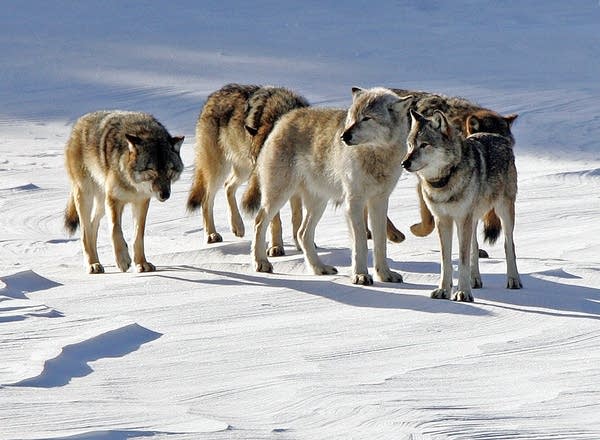Are reporters failing to make obvious climate links in stories?

Want Climate Cast in your feed each week? Subscribe to the podcast on iTunes.
One story that caught our eyes at Team Climate Cast recently was from FOX 9 News in the Twin Cities. It was a report about the disappearance of wolves on Isle Royale in Lake Superior.
NOAA and other researchers have documented a strong trend of less winter ice on Lake Superior as our climate warms. That's almost certainly why wolves can't get to the island from the mainland anymore.
But the FOX 9 news report doesn't mention the likely primary cause of the wolf decline: climate change.
Create a More Connected Minnesota
MPR News is your trusted resource for the news you need. With your support, MPR News brings accessible, courageous journalism and authentic conversation to everyone - free of paywalls and barriers. Your gift makes a difference.
Many stories on the news fail to mention climate change as a cause or contributing factor. We start this week's Climate Cast on that topic. Here's the show rundown:
What's missing in climate coverage. Climate communicator Genevieve Gunther generated a tweet storm after criticizing a lack of climate linkage in three specific stories by National Public Radio. She talks to Climate Cast host Paul Huttner about what she heard, and didn't hear.
An old climate research site may go away. One way scientists can track changes in climate is through painstaking record-keeping, like what researcher at places like Shingobee Lake, near Walker, Minnesota. The U.s Geological Survey has documented weather, water and the natural environment there since the 1970s, but the project's future is uncertain. Producer Alex Baumhart paid a visit. For more, check out her full story.
A climate change success story. California has reduced greenhouse gas emissions to below 1990 levels. Data from 2016 show the state is meeting the goal it set for 2020, four years early. California's electricity generation emissions dropped 16-percent in 2016 thanks to increased renewable energy sources.
Listen to the full segment by using the audio player above.